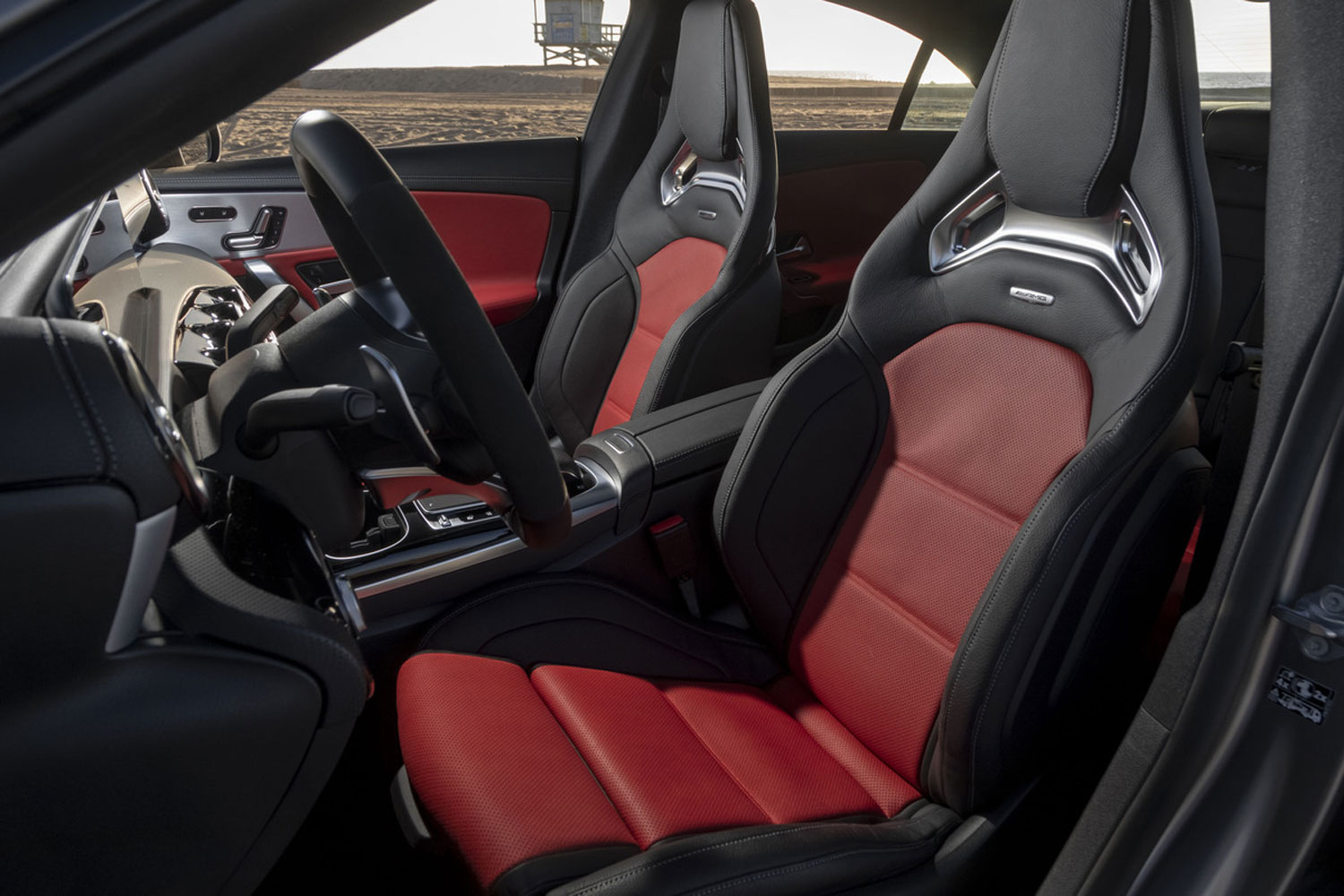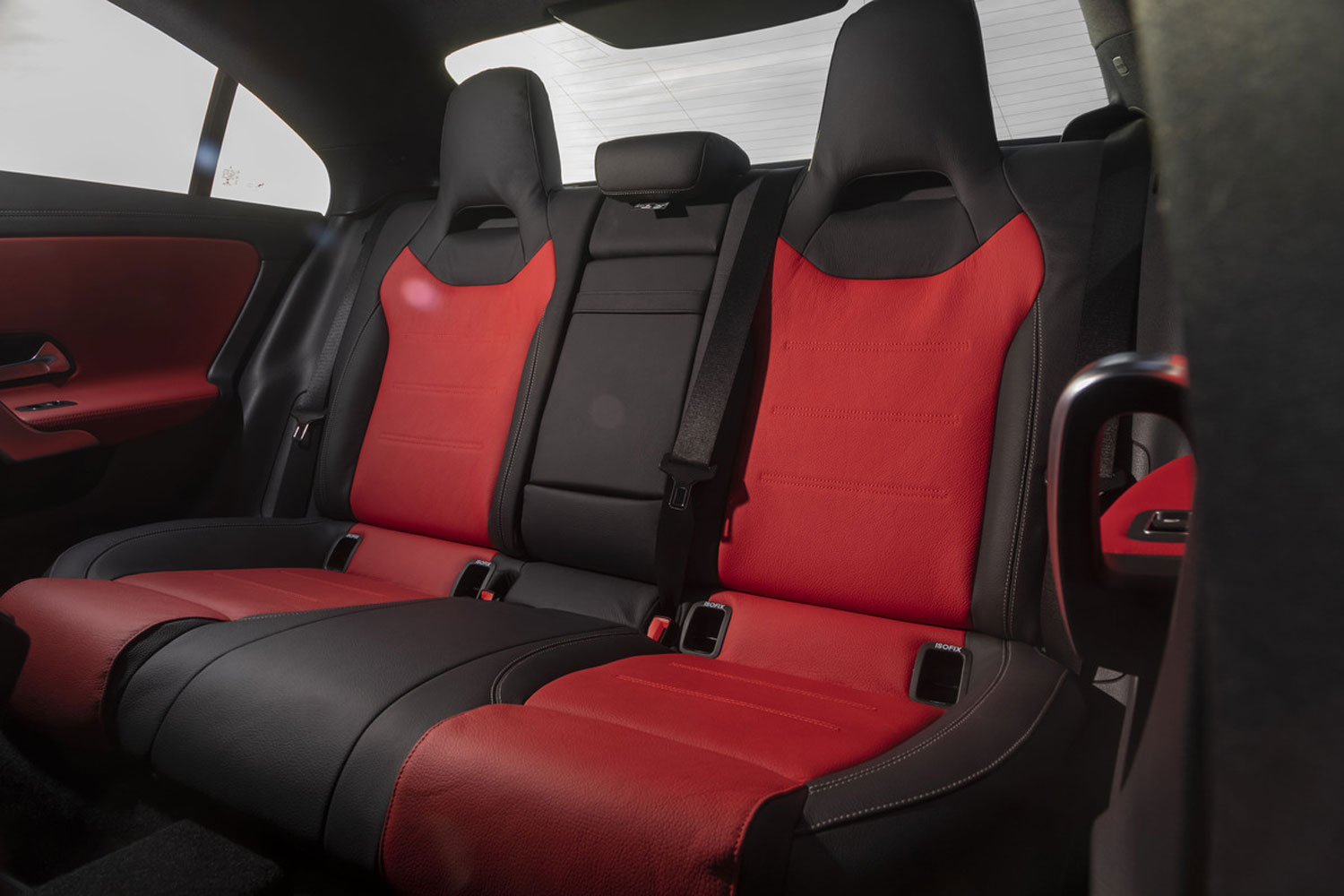Popular Car Seat Upholstery Materials Compared
How to choose the right interior for your next ride.
 Mercedes-Benz
Mercedes-Benz
QuickTakes:
There are many options available to new car buyers when deciding what kind of upholstery would be best inside their vehicle. Here’s a look at the pros and cons of the most popular upholstery materials on the market, ranging from the least expensive to the priciest high-end choices.
Cloth Upholstery
Cloth has been the standard automotive upholstery go-to for decades. Inexpensive to produce, durable over time, and resistant to both heat and cold, cloth fabrics derived from nylon and polyester are a popular choice for entry-level to midrange vehicles.
One downside to cloth is that it can be more difficult to clean, particularly if the dirt, grime, or food was ground into the grain of the materials. Cloth seats are also vulnerable to staining, whether it be from sweat or a spilled drink, which can lead to mildew and other odors. Finally, cloth’s association with less expensive models has traditionally made it unappealing to luxury automakers, making it challenging to find past a certain price point.
More recent innovations may push cloth upmarket, including a wool-based textile used by Land Rover and Volvo in select models.
Leather Upholstery
Leather is the traditional pick when it comes to high-end automotive interiors. Produced from animal hides, leather is simple to clean (with most dirt or spills simply wiping away), soft to the touch, and also wears well if it’s properly maintained.
That last point, however, is one of the cons of leather upholstery. If you don’t regularly clean and condition leather, it can start to crack and tear, which is difficult and expensive to repair. Leather is much more expensive than cloth to buy. It can also get hot enough to burn your legs in the summer, and cold enough to freeze your rear in the winter. Finally, not everyone is comfortable with an interior made from animal products.
 Mercedes-Benz
Mercedes-Benz
Vinyl
Vinyl seats represent a middle ground between cloth and leather. Like leather, vinyl is simple to clean, and like cloth, it is relatively inexpensive to manufacture and therefore purchase. It also isn’t sourced from animals, instead coming from petroleum products. There are many car companies that make high-end vinyl seats under various trade names, such as Mercedes-Benz’s MB-Tex in models like the CLA and GLE, that are almost indistinguishable from leather. This includes vegan leather interiors, which are often re-branded vinyl.
The downsides to vinyl seats are that they tear much more easily than leather or cloth, while replicating leather’s hot/cold amplification in the summer and the winter. They also don’t quite match up to leather when it comes to the touch test.
Alcantara
Alcantara is a high-end artificial fabric intended to mimic the soft-touch feel of suede. The material also provides excellent grip, which is why it is often used as a seat insert rather than to upholster an entire seat.
Alcantara is much less expensive than suede, but it requires regular cleaning to look and feel its best.
Written by humans.
Edited by humans.
 Benjamin Hunting
Benjamin HuntingBenjamin Hunting is a writer and podcast host who contributes to a number of newspapers, automotive magazines, and online publications. More than a decade into his career, he enjoys keeping the shiny side up during track days and always has one too many classic vehicle projects partially disassembled in his garage at any given time. Remember, if it's not leaking, it's probably empty.
Related articles
View more related articles